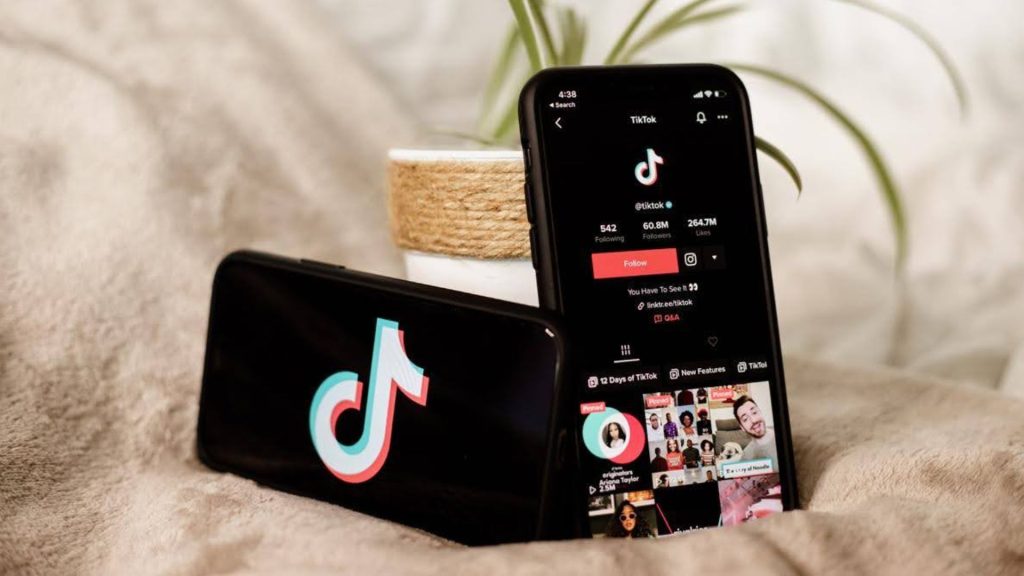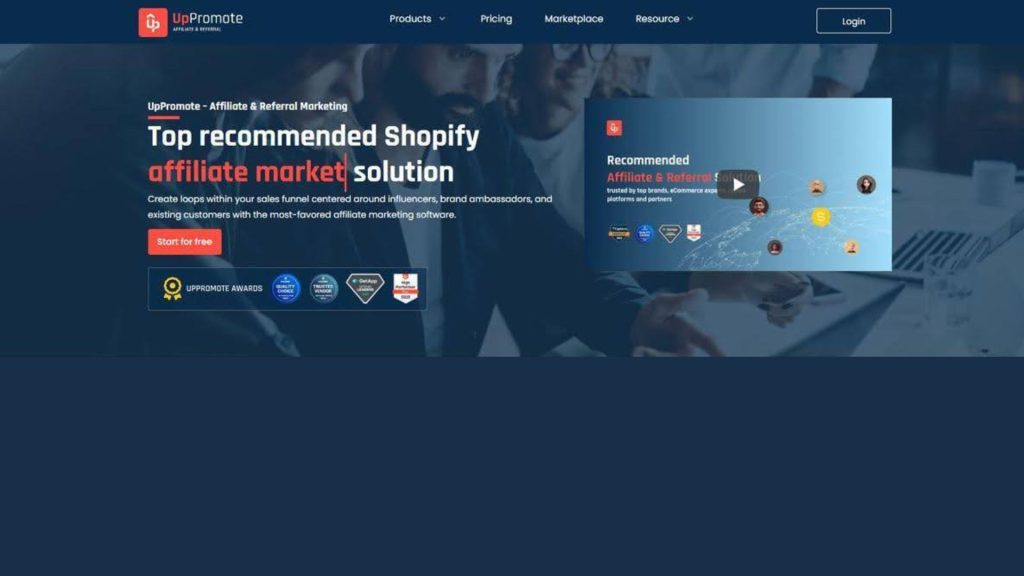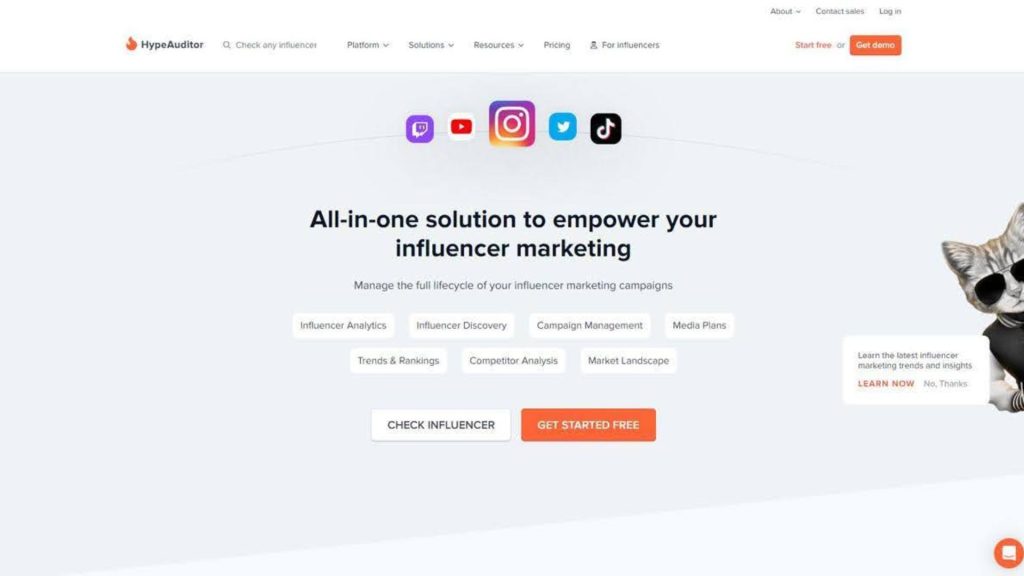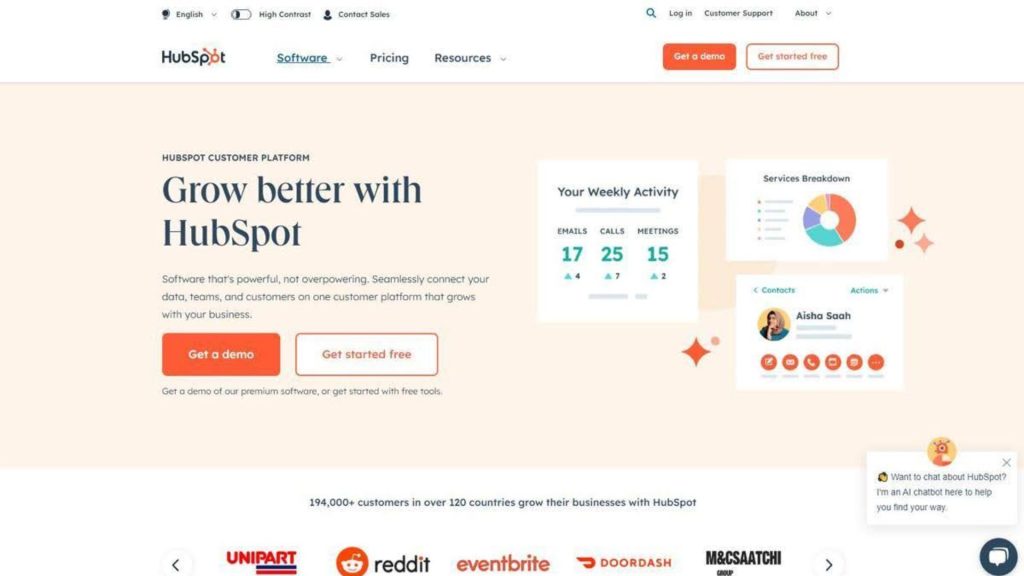Business owners often find distinguishing affiliate marketing vs. influencer marketing challenging. After all, many online resources use these terms interchangeably.
These marketing strategies have nearly identical goals. They help businesses improve brand awareness and generate leads. These actions can boost the company’s revenues.
However, these strategies also differ in several ways. Knowing these differences can help brands, advertisers, and merchants decide which model is best suited for their needs.
So, please sit back and relax while we shed light on the ongoing affiliate marketing vs. influencer marketing face-off.
Affiliate Marketing and Influencer Marketing: What’s the Difference?
Deciding between an influencer and affiliate marketing strategy can be confusing. Many internet resources talk about these strategies the same. However, we prepared the following table to simplify the variances between these models. Don’t worry. We will discuss each later.
| Affiliate Marketing | Influencer Marketing | |
| Participants | Publishers, bloggers, vloggers, content creators, agencies | Industry leaders, celebrities, media personalities, popular bloggers |
| Goal | Generate leads and bring sales to ensure revenue growth | Increase brand awareness |
| Outreach Method | Multiple channels (i.e., blogs, social media, podcasts, and emails) | Mostly social media |
| Compensation Model | Pay-per-action (lead or sales) | Hybrid (a combination of different compensation schemes) |
| Cost | 5% to 30% average commission per verified action | Could reach millions per exposure, notwithstanding the initial fee |
| KPIs | Website traffic, conversion rates, cost per action, sales volume, average order value | User-generated content, click-through rates, reach and awareness, audience growth, engagement rates, impressions |
Participants

Both strategies require a third party to encourage or “influence” potential customers (second party) to perform a company-desired action (first party). Despite the mirror-like function, affiliate marketing differs from the influencer strategy in who the third party is.
As the name implies, affiliate marketing requires a partnership with affiliates. Affiliate partners could be publishers, digital content creators, online marketers, and other entities who can promote your product to an intended audience. Affiliates could be individuals or agencies.
You can find hundreds of affiliates on an affiliate network (i.e., ShareASale and ClickBank).
On the other hand, influencer marketing requires a specific type of third party. They can be affiliates but must have a large set of loyal followers. These followers trust whatever the influencer says. When influencers endorse a product, their fans will buy the item.
Hence, influencers can be celebrities, A-listers, social media personalities, and industry leaders. Examples include Michael Jordan for Nike, Rihanna for Louis Vuitton, and Cristiano Ronaldo for Armani.
They could also be bloggers with a substantial follower base, such as Murad and Nataly Osmann (travel), Brittany Minor (beauty), Brittni Methoff (arts and crafts), and Jeff Bogle (parenting).
Partnering with an influencer often requires one-on-one communication with them or their representatives.
Goal
Although influencer and affiliate marketing requires partnerships, they differ in purpose.
Most businesses that want to improve brand awareness form a relationship with social media influencers.
For example, Cristiano Ronaldo has nearly 620 million Instagram followers, while Lionel Messi has about half a billion. Imagine the boost in brand awareness and loyalty if you could get these two footballers to endorse your product or service. That can improve your company’s revenues.
Influencers can also be excellent partners for drumming excitement for an upcoming event. For example, influencers can help generate enthusiasm for an upcoming product launch. An influencer’s clout over followers should give you the expected results.
While affiliate marketing campaigns can also improve brand awareness, affiliates’ principal concern is generating leads, producing sales, or both.
Hence, it’s not unusual for most merchants to prefer affiliate partnerships to influencers. It’s perfect for promoting products, services, promotional offers, exclusive deals, discounts, and other company offerings. Affiliate marketing is your go-to strategy if you need leads or sales immediately.
Outreach Method

An influencer campaign leverages the extensive reach of leading social media platforms. You can promote your brand to Facebook’s three billion users or YouTube’s 2.5 billion users. Instagram has about two billion, while TikTok has 1.2 billion.
Affiliate marketing doesn’t limit your audience outreach to social networks. Blogs, websites, coupon sites, emails, podcasts, messaging apps, newsletters, and webinars can generate leads or sales.
We must point out that influencer strategies cater to a wider audience. After all, they’re loyal fans. They could be anybody from anywhere.
Meanwhile, affiliate marketing focuses on a specific group of audience. For example, you can target only dog owners to promote your innovative dog training program. It’s a readily available market. These audiences are a step closer to buying a product.
Audience specificity empowers your business to customize programs. It ensures more definitive results.
Compensation Model
Affiliate marketing is a performance-based marketing strategy. You will pay affiliates only if they produce the desired results.
For example, suppose you want referrals to buy a product or subscribe to a service. In a pay-per-sale (PPS) model, you compensate affiliates for their marketing efforts only if their referrals buy from your business.
It’s the same with generating leads (pay-per-lead or PPL model). For instance, you want referrals to subscribe to your email newsletter or join a free trial. You don’t sell anything. However, you increase the chances of these leads becoming paying customers. You give them experiences that motivate them to buy.
On the other hand, the influencer compensation model depends on your agreement. For example, you could agree to pay the influencer a commission for five social media posts. Or, you could give a free product or exclusive gift. Lastly, it’s not unusual for companies to pay influencers a flat fee or a combination of commission, fixed fee, and gift.
We can liken influencer-based marketing to an advertising billboard on a busy highway. You pay for product placements on their Instagram, Facebook, and YouTube channels.
Cost

As mentioned, affiliate marketing lets you pay affiliates only for verified referral action. Hence, it’s a more cost-effective solution for driving traffic, generating leads, and boosting revenues.
The average affiliate network or program pays marketers a 5% to 30% commission per valid transaction. You can be more generous if you want. Some businesses might offer lower commission rates, especially for big-ticket items. You decide on how much you’ll pay affiliates.
Note that partnering with an affiliate network will cost you a fee. For example, Rakuten charges merchants 99 US cents and 8-15 percent commission for every product sold. You will also pay $39 monthly for using the affiliate platform.
On the other hand, influencer marketing campaigns are more expensive. Everything depends on your agreement with the influencer. Moreover, influencer types can impact your budget.
For instance, a mega influencer can charge millions of dollars for endorsing your product. If you’re a small business owner who wants to boost brand awareness, partnering with a micro-influencer might be a better option.
KPIs
Key performance indicators are the last item we must discuss in the ongoing affiliate marketing vs. influencer marketing debate.
Affiliate marketing has short-term goals. It focuses on generating as many affiliate sales as possible. Hence, we can expect businesses to monitor conversion rates, sales volume, cost-per-action, and average order value. Conversion rates also matter in lead generation.
On the other hand, influencer marketing has longer-term KPIs. After all, the goal is to improve brand awareness. It can take time. The metrics you should monitor and analyze when engaging in this form of marketing include click-through rates, user-generated content, audience growth, and engagement rates.
You can also monitor impression data on social media posts, videos, blog posts, and other campaign-specific content creations. This metric allows you to gauge whether the influencer campaign brings new or repeat visitors. Ideally, you’ll want more new visitors to show the campaign effectively boosts brand awareness.
What is Affiliate Marketing and How Does it Work?

Affiliate marketing is a strategy leveraging online marketers’ reach and promotional skills. It empowers businesses to promote offerings on other people’s or agency’s channels.
The marketing model relies on affiliates to embed trackable links in their content creations. You pay affiliates only when their referrals perform your company’s desired action. It could be completing a lead-generating form or buying an item.
So, how does this strategy work?
It begins with your business creating a program for affiliates. Alternatively, you can join a reputable affiliate network to handle your affiliate marketing needs. These platforms provide marketers with resources to mount an effective campaign.
On the other hand, affiliates are responsible for developing and publishing high-quality, persuasive, and engaging content in their channels. It’s their way of building credibility and winning audiences’ trust.
When affiliates promote your products, their audiences will have no issues considering their recommendations or advice.
Audiences clicking on affiliate links will reach your website and learn more about your company and offerings. If they buy the product or perform a desired action, the affiliate link allows you to determine who to credit the sale to. Your job is to pay affiliates a percentage commission on sales, leads, or any verified referral action they produce.
Bloggers, publishers, agencies, content creators, and other affiliates have only one job – promote your product to produce actionable leads or boost sales. And you won’t pay them until they do.
And that is why marketing experts view affiliate marketing as a cost-effective strategy. No results, no pay.
What is Influencer Marketing and How Does it Work?

Influencer marketing is nearly identical to affiliate marketing. You will still develop a partnership with someone. However, that person has a massive influence over other people’s decisions. Hence, the name “influencer.” Some folks call them “endorsers.”
Influencers have a sufficiently large following, ranging from hundreds to millions.
For example, macro-influencers have 100,000 to a million followers. Mega influencers have a more substantial following. Their followers exceed a million. Imagine partnering with these influencers with a strong clout over their fans. You could build a wide customer base.
Like affiliates, influencers promote the products or services of a partner company. The only difference is it’s a one-on-one relationship. You agree with the influencer to mention or recommend your offerings to their followers.
They can also discuss your products or services exclusively on their YouTube channels, Instagram accounts, and other platforms. Alternatively, influencers can produce stories or posts across platforms and channels to increase people’s awareness of your brand.
Your objective is to leverage the influencer’s relationship with their followers to achieve your marketing campaign goals.
In return, you will pay the influencer a lump sum based on the agreement. Some might demand an initial payment. However, some influencers are okay with receiving a commission or an exclusive gift. Everything depends on what you agree upon at the start of the relationship.
This strategy is perfect for building brand awareness. When an influencer mentions your brand to their followers, the engaged audience will search for more information about your business on Google or Bing. They will research your brand and compare you with competitors.
If your business has many competitive advantages over other brands, these individuals can follow you on your social media account. They can buy your products over time.
Affiliate Marketing or Influencer Marketing: How to Choose the Suitable One?

Deciding between influencer and affiliate marketing can be challenging for novice business owners and advertisers. So, we summed up the pros and cons of each strategy in the following table.
| Affiliate Marketing | Influencer Marketing | |
| Pros |
|
|
| Cons |
|
|
Two of the most significant benefits of affiliate marketing are its negligible startup cost and effortless setup. Affiliates could promote your product when you sign up with an affiliate network to manage your program. Joining a network will only cost a few hundred dollars, depending on the platform.
Because affiliate marketing focuses on driving sales and you only pay for verified results, it is a cost-effective strategy. You can generate a higher ROI using this model. More importantly, you can track and analyze the results before paying a commission.
Unfortunately, affiliate marketing puts the creation of digital marketing strategies on affiliates. You have limited control over what affiliates create and publish in their channels. Additionally, some affiliates might resort to illegal tactics to earn more commissions.
Meanwhile, influencer marketing is perfect for growing people’s awareness of your brand. It can also ensure brand trustworthiness and credibility, especially if the influencer does an excellent job building your brand’s image.
Because influencers can come from a different industry, you can leverage their influence to expand your business into that niche.
The high cost of partnering with some influencers is one of the most significant cons of influencer marketing. Finding an influencer willing to promote your brand can also be challenging. Lastly, tracking brand awareness metrics can be tricky without the right tools.
Can You Combine Affiliate Marketing with Influencer Marketing?
Influencer and affiliate marketing share a common theme – audiences. Affiliate marketing emphasizes conversions or the number of people becoming a paying customer. Meanwhile, influencer marketing improves brand awareness by widening your target audience.
Hence, you can leverage these two approaches to grow your business. One is perfect for accomplishing your company’s short-term objectives, while the other feeds your long-term goals. Combining them is a sound idea.
We recommend the following tools to help you maximize the power of both strategies.
UpPromote

Here’s an invaluable tool for finding high-performing affiliates to drive traffic to your business and help it grow. UpPromote isn’t only a marketplace for businesses to partner with affiliates. It’s also a trustworthy solution for managing your affiliate campaigns.
UpPromote is an app specific for Shopify store owners. You can build an affiliate program from scratch or develop several with dynamic commission schemes. It’s like a powerful magnet attracting high-quality affiliates across market segments.
Customize affiliate registration forms to streamline application and vetting processes. You can also personalize the affiliate portal and track products, emails, links, and promotional materials in a single platform.
You can also use the app to encourage customers to become your company’s brand ambassadors. Communicating with affiliates and influencers is easy with UpPromote.
And if you’re worried about optimizing the platform for your business, you can rely on UpPromote’s customer support to keep you ahead of the game.
You’ll join over 100,000 brands using UpPromote. That’s a good sign for your business because you can leverage these partners to grow your brand.
Potential Revenue with Affiliates (UpPromote)
Estimate the potential revenue when you recruit affiliates: comparing Current Business and Business + UpPromote.
Estimated Impact
Quickly visualize how affiliates can boost your orders and revenue.
Revenue Comparison: Current vs. with UpPromote
The chart illustrates relative revenue growth comparing two scenarios: organic sales vs. organic + affiliate-driven sales.
- Affiliate traffic quality is equal to your current traffic.
- AOV and Conversion Rate remain stable.
- Does not account for churn, refunds, or potential upsell/cross-sell.
HypeAuditor

Your objective is to leverage the influencer’s relationship with their followers to achieve your marketing campaign goals.
To keep programs accountable and optimize spend, teams can use AI-driven influencer platforms to track influencers, verify audience quality, and attribute sales across channels with clearer ROI.
HypeAuditor lets you find the best match for your business’s influencer marketing program. You can discover the next star for your brand by leveraging HypeAudtor’s 80+ million influencer database on YouTube, Instagram, Twitch, TikTok, and X.
You’ll gain insights into these influencers’ audience demographics, social media engagement, and 33 other in-depth metrics.
HypeAuditor also enables you to manage your influencer campaigns. Creating a media plan should be easy. Generating estimates for your KPIs isn’t a problem because HypeAudtor’s algorithm does everything.
More importantly, you’ll learn about your campaign’s performance. It allows you to tweak strategies to ensure better results.
But HypeAudtor doesn’t stop with influencer discovery and campaign management. This platform also offers one of the best fraud detection systems. You’ll never worry about your investment because HypeAuditor has your back against scheming influencers.
HubSpot

Although HubSpot isn’t an affiliate marketing tool, it’s one of the best programs for managing customer relationships. After all, influencer and affiliate marketing value customers.
Influencers increase brand awareness, allowing their followers to consider your brand. And if they like your brand, they can become your customers. It’s the same story with affiliate marketing, although the results are more immediate. Referrals visiting your site can become instant customers.
Hence, your job is to take care of these customers to improve your credibility and trustworthiness. If your customers are happy, they will tell their friends and social contacts about their positive experiences. That’s extra business for your company.
HubSpot lets you manage customer experiences in a single platform. You can connect your company’s customer service, content management, marketing, and sales to create a more robust and pleasant customer experience.
For example, suppose you want to analyze your business’s customer lifetime value. This metric is crucial because it tells how much business a single customer brings to the brand. You can identify issues undermining customer retention and loyalty. Moreover, CLV helps you target ideal customers.
This information can help you strategize your influencer and affiliate marketing program.
HubSpot lets you do this, making it an indispensable tool for businesses who want to leverage influencer and affiliate marketing.
FAQs
- Is influencer or affiliate marketing necessary for my brand?
Only you can decide whether influencer or affiliate marketing is necessary for your brand. You can grow brand awareness and generate sales through traditional marketing methods. However, influencer and affiliate marketing are more efficient. You can brainstorm with your team to determine the best strategy for your needs, resources, and budget.
- Can I use affiliate and influencer marketing at once?
Yes, you can use influencer and affiliate marketing simultaneously. We must reiterate that influencer partnerships are perfect for improving brand awareness and reaching lookalike audiences. Meanwhile, affiliate marketing generates sales, allowing you to use the revenue to finance your influencer campaign.
- Is influencer marketing worth it?
Despite its higher cost than affiliate marketing, influencer partnerships are worth it. However, its value depends on who you partner with and how clear your marketing objectives are. For example, partnering with a credible influencer can give you excellent returns on investment, while a dubious personality might run off with your money.
- How to start an affiliate and influencer program?
Starting an affiliate and influencer program requires clarifying your objectives. Decide whether to use an affiliate network or create a built-in program. Next, design your compensation package, which should be attractive enough for influencers and affiliate partners. Now, find the best partners for your affiliate and influencer program.

Conclusion
Taking sides on the ongoing affiliate marketing vs. influencer marketing debate is pointless. These strategies are equally effective in growing your business, albeit they have diverging purposes. One is ideal for growing brand awareness, while the other drives sales to the business.
You can get both.
Our take on this debate is for businesses to leverage both strategies. Affiliate marketing can handle your short-term business objectives, while influencer campaigns can help realize your company’s long-term goals.







